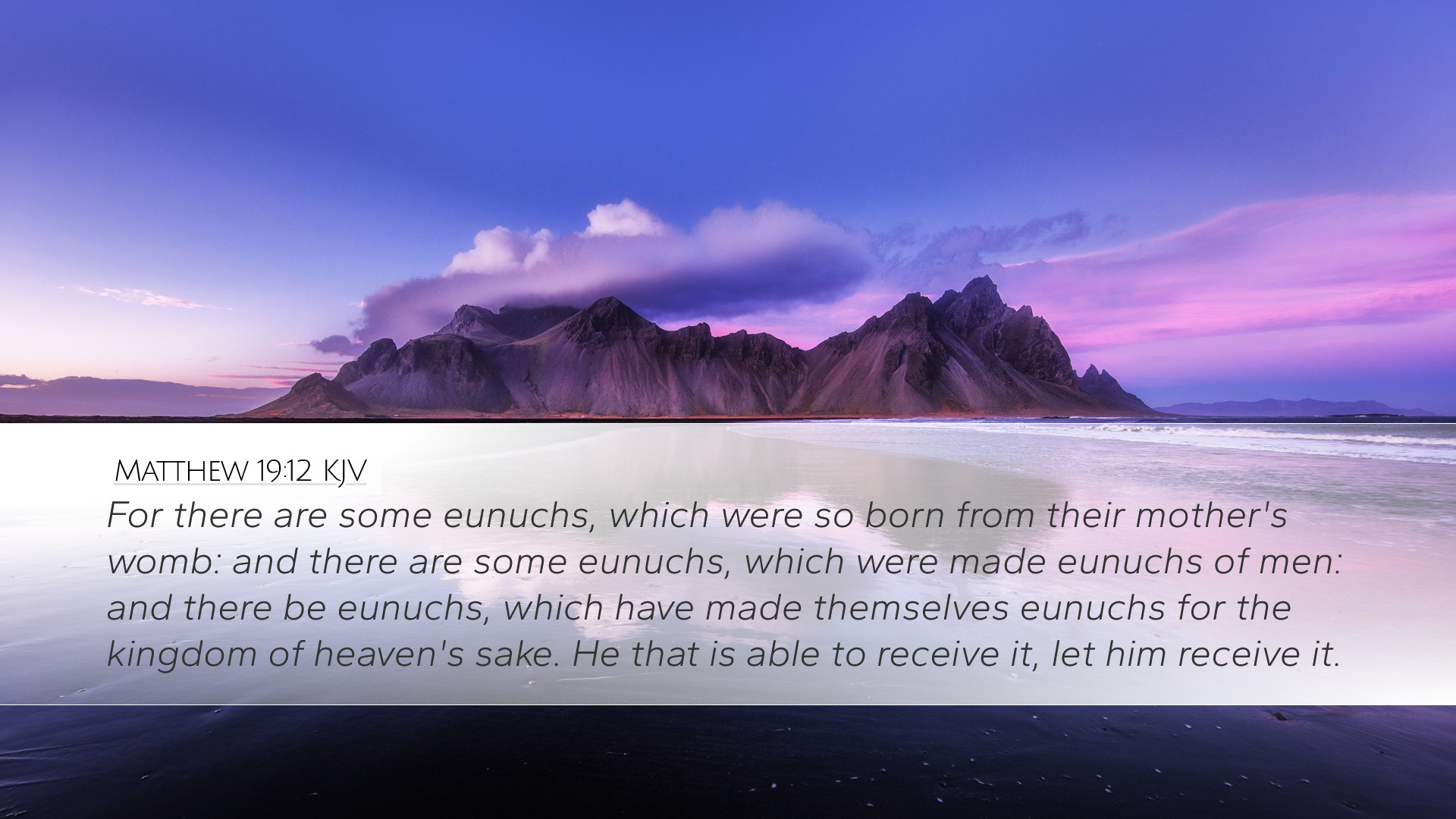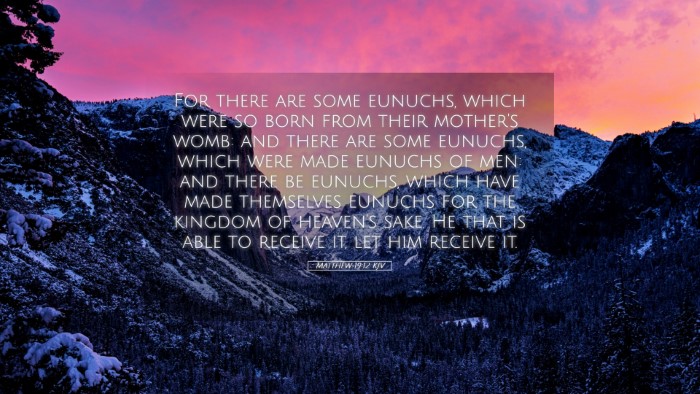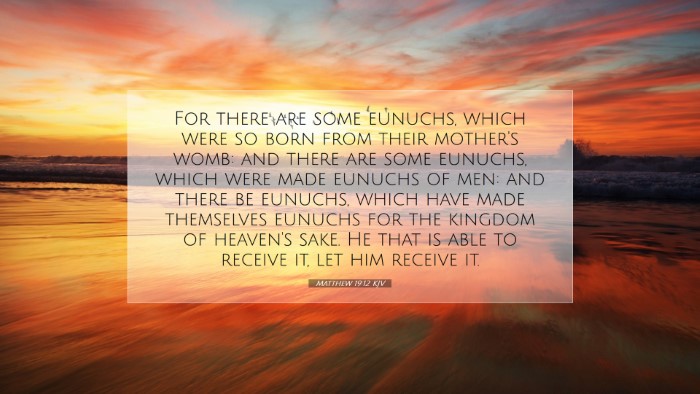Commentary on Matthew 19:12
Bible Verse: “For there are eunuchs who were born that way, and there are eunuchs who have been made eunuchs by others, and there are those who choose to live like eunuchs for the sake of the kingdom of heaven. The one who can accept this should accept it.” (Matthew 19:12, NIV)
Introduction
Matthew 19:12 presents a profound teaching from Jesus Christ regarding eunuchs and the varied reasons for their existence. This passage is situated within a broader discussion about marriage, divorce, and the kingdom of heaven, representing a call to a deeper understanding of commitment both in marriage and spiritual life.
Contextual Background
In this chapter, Jesus speaks on the sanctity of marriage and the implications of divorce, asserting that the original intention of God was for a lifelong union (Matthew 19:4-6). The disciples, confronted with the demanding nature of Jesus' teaching on marriage, initially respond with a sense of despair regarding the possibility of remaining celibate.
Understanding Eunuchs in Scriptural Context
The term "eunuch" in this context can be understood in three significant ways:
- Born Eunuchs: This may refer to those who are born naturally incapable of sexual intercourse or have a disposition towards celibacy from birth.
- Made Eunuchs: Some were made eunuchs through the actions of others, often referencing those who served in royal courts, where physical mutilation was common to ensure loyalty and prevent procreation.
- Eunuchs for the Kingdom: This signifies those who voluntarily choose celibacy to focus entirely on their spiritual lives and commitments to God’s service.
Theological Implications
This verse invites a reflection on the nature of commitment to God and the various forms it may take. The choice to live like a eunuch for the kingdom of heaven underscores the importance of dedicating one's life to God's service, which bears significant implications for understanding spiritual vocation.
Matthew Henry emphasizes that while marriage is a blessed state, celibacy is also honorable and should be pursued when it aligns with divine calling. He notes that this should not be viewed as an imposed condition, but as a voluntary response to a divine invitation to a life of dedicated service.
Practices of Celibacy
Insights from Albert Barnes suggest the celibate life can be a noble path for those who are divinely called to it. He contrasts this with the broader societal tendency to view marriage as the only legitimate context for sexual expression, reinforcing the notion that celibacy can also serve a divine purpose.
Application for Pastors and Leaders
For pastors and church leaders, this passage offers crucial insights into how to support individuals who have chosen celibacy for spiritual purposes. Understanding the sanctity of both marriage and celibate life enables leaders to promote a balanced perspective on sexuality and spiritual dedication.
Adam Clarke stresses the need for a supportive community that recognizes diverse calls to holiness, be it through marriage or celibacy. It encourages leaders to foster an environment that honors and respects the choices of individuals based on their spiritual calling.
Conclusion
Matthew 19:12 serves as a potent reminder of the multifaceted nature of human existence and divine calling. It challenges perceptions towards sexual relationships and discipleship, advocating for a broad understanding of commitment to God. In recognizing this call, both married individuals and those who choose celibacy are encouraged to pursue their respective paths heartily, as expressions of divine partnership in service to the kingdom of heaven.


